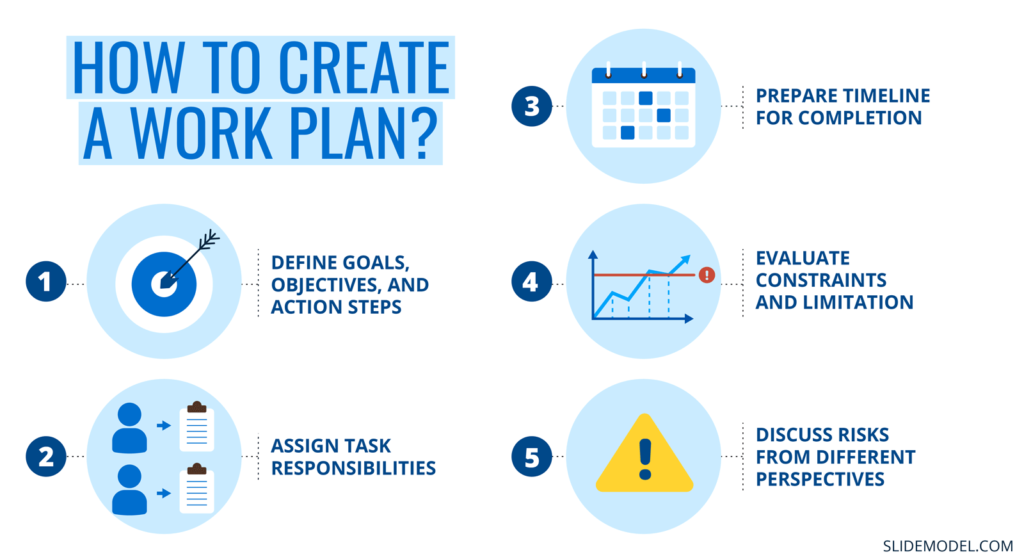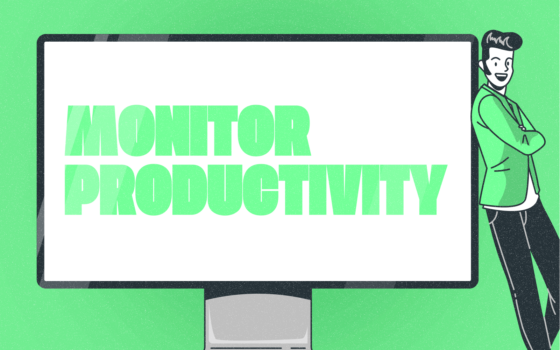11 Ways to Get Your Team to Respect Deadlines

Not meeting a deadline is not a death or life issue, but indeed it makes everything very complicated. Deadlines exist for a reason as they ensure that work is completed on time and that everyone is aware of what needs to be done and happy at the end of the day!
Unfortunately, many employees do not take deadlines seriously, which can cause problems for the team as a whole. In this blog post, we will discuss 10 ways to get your team to respect deadlines. Follow these tips and you’ll be able to avoid missing deadlines and keep your project on track!
Keep reading!

Missing deadlines is not a simple issue, there is a lot behind it! More often it’s not about plain incompetence, but a complex set of reasons, including:
- You may have a team member who is dealing with personal issues that are affecting their work.
- They may be unclear about the task at hand or lack the necessary skills to complete it.
- There could be conflicts within the team that are preventing them from working together effectively.
- Or, the deadline may simply be unrealistic.
No matter the reason, missing deadlines can have a negative impact on the team’s morale and performance. It can also jeopardize the success of the project as a whole. That’s why it’s important to address the issue head-on and find a way to get your team to respect deadlines.
Let’s dive into the topic!
Procrastination, Deadlines, and Employee Performance
Haven’t we all made jokes about NEVER starting that long list of stuff to do? And hey, don’t even start denying it! We know you have, just look at the retweets and likes to the tweet below!
We are not judging, though. Procrastination is part of life, but we are here trying to help you out!

Procrastination’s etymological root is the Latin verb “procrastinare”, which means to postpone until tomorrow However, it goes beyond merely postponing voluntarily. The word “procrastination” ALSO comes from the Greek word “akrasia” which means acting against our better judgment.
So, procrastination is not just about postponing things; it’s about making decisions that we know are not good for us
If you have ever found yourself in the situation of having to do something important, but putting it off until later, then you know what procrastination feels like. And chances are, you also know how it can impact your work.
Procrastination and Employee Performance
In fact, many studies show the relationship between procrastination and job performance. For example, a study by Steel (2007) found that 26% of employees identified themselves as chronic procrastinators. These individuals reported lower work satisfaction, more health problems, and higher levels of stress.
Another study found that employees who procrastinated were less likely to receive promotions, and more likely to be fired, which it’s quite sad considering it can be avoided!
Procrastination and Deadlines
On other hand, it is important to understand the difference between the two before taking any measures.
- Procrastination is a voluntary act of postponing something, even though you know it needs to be done.
- A deadline is an externally imposed date by which something must be done.
In other words, deadlines are often set by someone else, whereas procrastination is a decision that we make ourselves. However, can you procrastinate on deadlines?
Actually, yes. Saying “I’ll do it tomorrow” or “It’s not a priority right now” are both examples of procrastination, even though the task at hand has a deadline.
So, how can you get your team to respect deadlines and avoid procrastination?
Get more out of your business
Get the best employee engagement content every week via mailing list
11 Late on Deadline Survival Tips
Did someone launch an SOS signal? Monitask is here to throw the lifeguard vest!
#11 Reward and Recognize
Recognizing team members who consistently meet deadlines is a great way to motivate the entire team. When people feel appreciated for their efforts, they become more invested in contributing.
Consider rewarding those who meet deadlines with small incentives like gift cards, extra time off, or public recognition. You can even implement a “Deadline Hero” program to highlight star performers each month. Seeing others rewarded for good work inspires everyone to step up.
Celebrating wins, both big and small, creates a positive team spirit and energy around deadlines. Be specific with praise and ensure people understand exactly what they did well. Recognizing achievements publicly in meetings or on the company intranet spreads positive peer pressure.
Rewarding success establishes meeting deadlines as something to strive for.
It incentivizes people to make it a priority not just for themselves but for the good of the team. With an emphasis on appreciation and recognition, your team will likely rally around deadlines.
Use a Deadline Tracking Tool
There are several deadline-tracking tools available that can help you stay on top of deadlines and avoid procrastination. These tools allow you to create and manage deadlines, as well as set reminders so your team never misses another deadline again.
Monitask is a great tool that can be used to track how much time is being spent on each task. This information can then be used to optimize future projects and ensure everyone works efficiently.
Monitask is a project management tool that helps in deadline tracking. It allows managers to assign projects and tasks to team members and keep track of progress and deadlines.
The software ensures efficient allocation of resources and enables review of work hours associated with each project and task. It aids in improving overall team collaboration and productivity.
Monitask enables a clear overview of tasks, deadlines, and project progress.
Set a Good Example
Imitation is the sincerest form of flattery, right? Well, it also happens to be an effective way to get your team to respect deadlines. As a manager or boss, it’s important to set a good example for your team by respecting deadlines.
This shows them that you’re committed to meeting deadlines and that you expect the same from them. It also sets the tone for how deadlines should be treated in general – with respect.
If you want your team to respect deadlines, you need to set an example. That means meeting deadlines yourself and holding others accountable when they don’t
When deadlines are respected, it helps to improve communication and collaboration among team members, as well as overall productivity.
Make Deadlines Clear and Concise
When assigning tasks, be clear about what needs to be done and when it needs to be done. Ambiguous instructions will only lead to confusion and more missed deadlines.
When setting a deadline, be sure to include all the relevant information, such as what needs to be done, by when, and who is responsible for each task. One great tip that applies to almost everything in life is the 3 C’s of communication.

- Concise: Try not to include any unnecessary information. Be clear and to the point.
- Consistent: Establish a standard deadlines schedule and stick to it as much as possible. This creates stability.
- Clear: Use language that everyone can understand. Avoid jargon or complicated terms.
If you want your team to respect deadlines, communicate them clearly, concisely, and consistently.
Break Down Projects into Smaller Tasks
Large projects can be daunting and overwhelming, leading to procrastination. To avoid this, break down the project into smaller tasks that can be completed more easily.
This will help your team stay focused and on track, while also feeling a sense of accomplishment as they check each task off their list.

This step is part of a commonly used technique in project management called “The Critical Path Method” that helps to schedule and control complex projects by identifying the sequence of activities that must be completed on time for the project to be successful.
Reinforce the Importance of the Deadline
Reinforcing the importance of the deadline is important for an effective deadline. When a person understands the severity of not meeting a deadline, they are more likely to complete the task on time.
This can be done by communicating why the deadline is important and what will happen if it’s not met
It’s also important to emphasize that meeting deadlines is a team effort and that everyone needs to do their part. If one person falls behind, it can have a ripple effect and throw the whole project off course.
Hold Team Members Accountable
When someone on your team constantly misses deadlines, it’s important to hold them accountable. This can be done by setting up a meeting to discuss the issue and come up with a plan to improve their performance.
You may also want to consider reassigning some of the work while you figure out why a team member is missing deadlines
It’s also important to document these conversations, so you have a record of what was discussed and agreed upon. This will help to hold the team member accountable and ensure that they are held responsible for their actions.
This doesn’t mean being overly critical or punitive but instead having a conversation about why meeting deadlines is important and what the consequences are for not meeting them.
Don’t Overwhelm Your Team
As a manager, it’s your job to ensure that your team is productive and meets deadlines. However, it’s also important to avoid overwhelming your team with too much work.
If you consistently assign more work than your team can handle, they will quickly become bogged down and stressed out
If you overwhelm your team with too much work, they’re bound to miss deadlines. Not only that, but they’ll also be more likely to make mistakes and produce subpar work.
It’s better to assign a few tasks and have them done well than to assign a lot of tasks and have them all done poorly. When in doubt, it’s always better to err on the side of caution.
Create a Schedule or Timeline
Creating a schedule or timeline for a project can help ensure that deadlines are met. This is because it provides a visual representation of what needs to be done and when it needs to be done.
Of course, schedules and timelines need to be realistic in order to be effective. If your team tries to pack too much into a short period of time, they will only end up feeling stressed and frustrated. If possible, give them some buffer room in the schedule so that they can account for unexpected delays or setbacks.
The most important thing is to have some sort of plan in place so you can keep track of deadlines and make sure they’re being met

Be Flexible with Deadlines
Sometimes, despite our best efforts, deadlines are not met. In these cases, it’s important to be flexible and work with your team to find a new deadline that works for everyone.
Rigidly sticking to a deadline that can’t be met is only going to lead to frustration and resentment. But being willing to adjust the deadline shows that you’re willing to work with your team and find a solution that works for everyone.
If a team member is struggling to meet a deadline, see if there is any wiggle room. Perhaps the project can be split up into smaller tasks or the deadline can be extended by a few days!
Maintain a Positive Attitude
It’s important to maintain a positive attitude when dealing with deadlines, even if they’re not being met. This is because your team will take their cues from you.
If you’re stressed and angry about a missed deadline, your team will only get more stressed and angry. But if you stay calm and collected, they’ll be more likely to do the same.
Remember that meeting deadlines is a team effort, and everyone needs to work together to make it happen. Getting upset won’t help anything, but remaining positive will go a long way in keeping everyone on track.
BONUS TIP!
Keep Communication Open
Open and clear communication is essential for any team, but it’s especially important when deadlines are involved. This is because you need to be able to relay information about deadlines and expectations clearly and concisely.
If your team isn’t aware of what’s expected of them, they’re not going to be able to meet deadlines. Likewise, if you’re not aware of what your team is working on, you won’t be able to provide adequate support.
Make sure that everyone is on the same page by holding regular meetings and keeping an open line of communication. This will help ensure that everyone is aware of deadlines and knows what they need to do to meet them.
Final Considerations
We can reinforce enough the importance of meeting deadlines for any team, but we know it can be especially difficult when you’re dealing with a large project. By following the tips above, you can increase the chances that your team will meet their deadlines and produce high-quality work.
Remember to be flexible, keep communication open, and maintain a positive attitude. And most importantly, don’t try to bite off more than you can chew. If you take things one step at a time, you’ll be surprised at how much your team can accomplish!
And if all else fails, ask yourself: Are my deadlines realistic? Am I being too pushy with my team?
If the answer is yes, maybe you can back down to reassess your work plan and offer an extension while you figure everything out!
Did you find this blog post helpful? If so, please share it with your friends or colleagues!
-The Monitask Team
FAQ
Why is it important to meet deadlines in the workplace?
Adhering to deadlines keeps projects moving forward, ensures tasks interconnect smoothly and maintains trust among colleagues. Missing deadlines can delay downstream work, compromise quality, and indicate poor reliability to coworkers.
How do you set effective deadlines?
Set realistic deadlines considering task complexity, employee workload, and accounting for reasonable delays. Communicate deadlines clearly and consistently via multiple channels like email, chat, and team meetings.
How do you coach an employee who misses deadlines?
Have an open discussion on why deadlines are missed to find solutions and remove roadblocks jointly. Establish an improvement plan with clear expectations, check-ins, and measured goals for meeting future deadlines.


